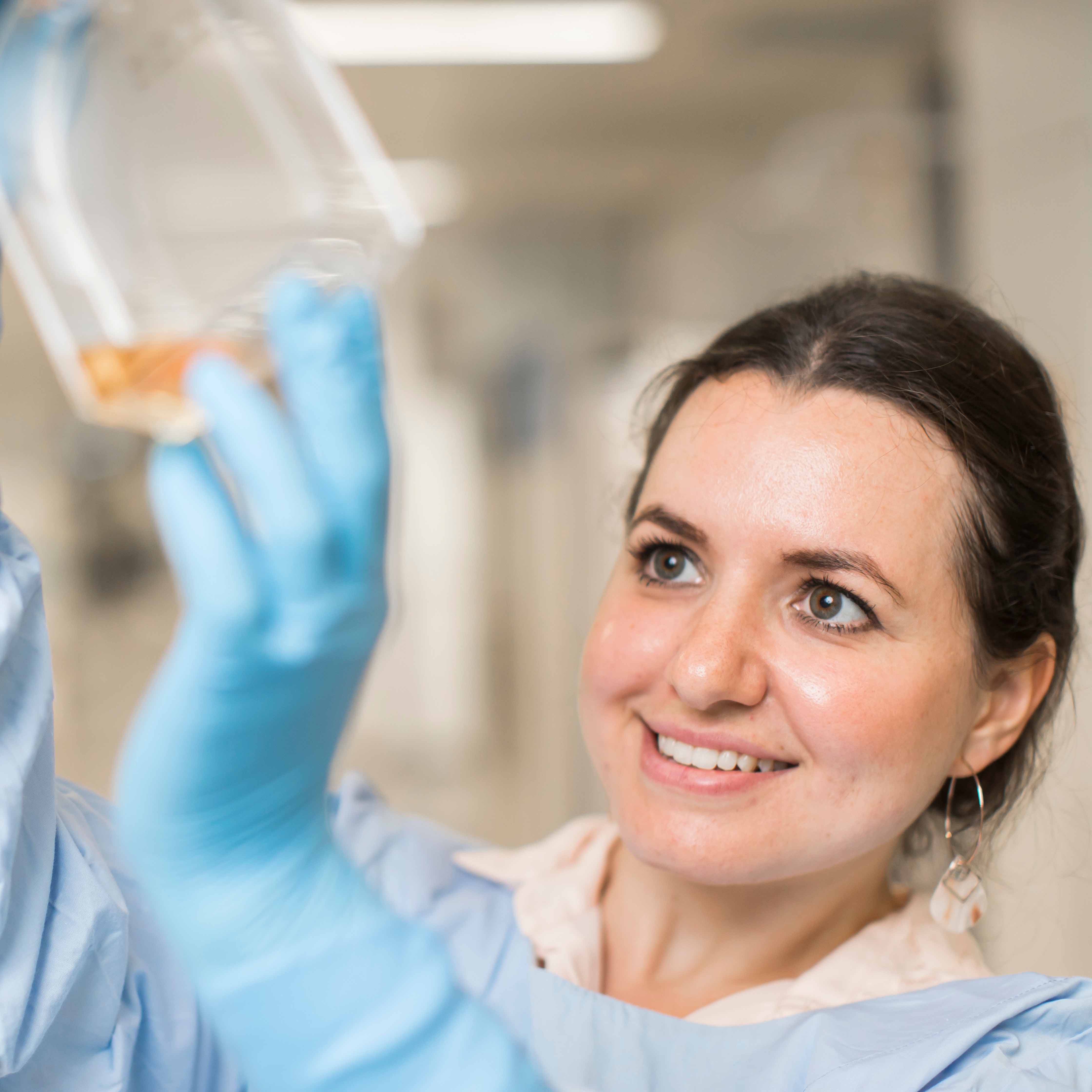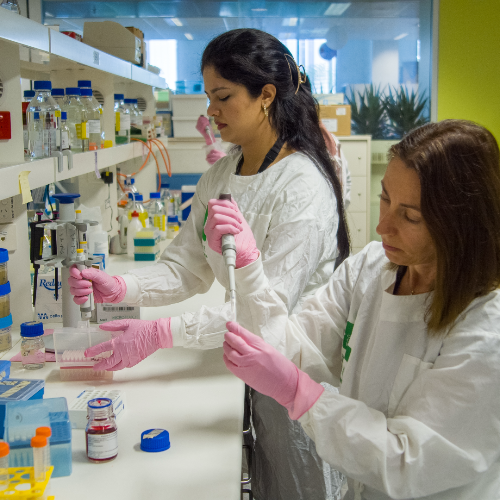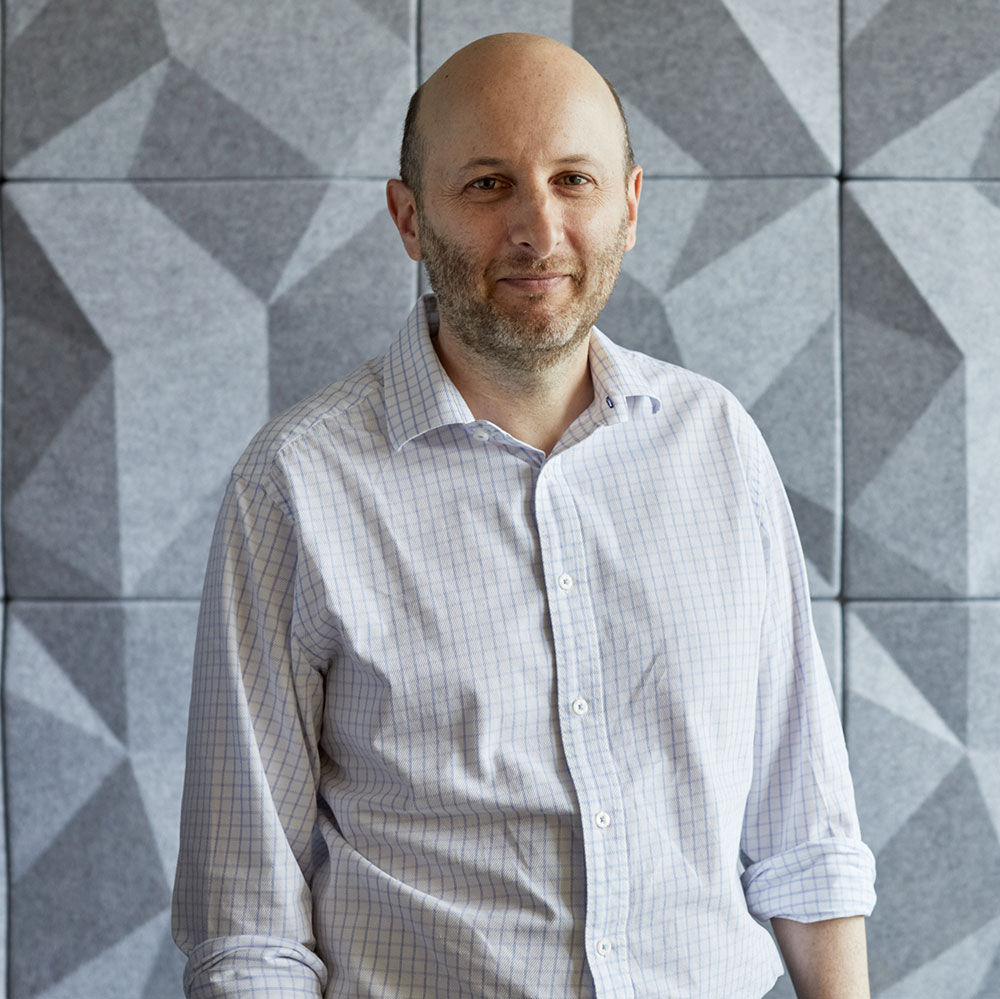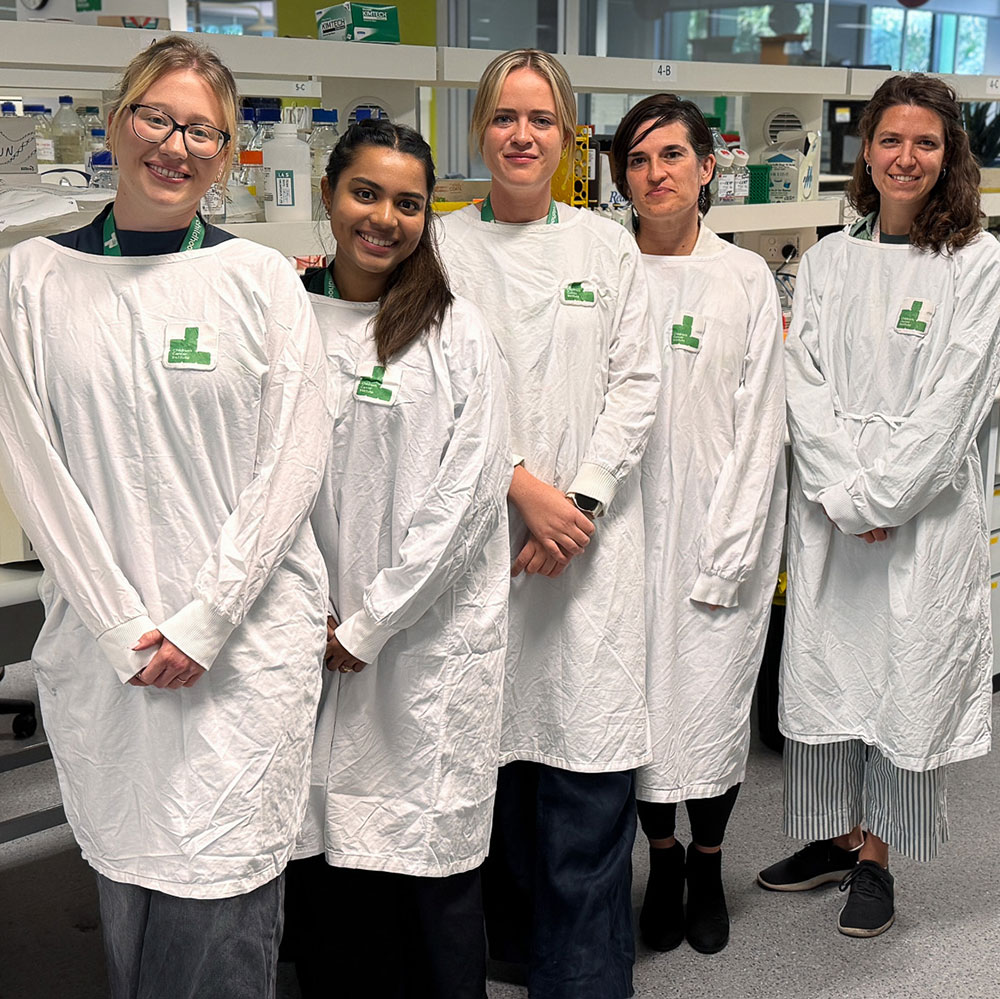In our second blog during Brain Cancer Awareness month, we explain the testing that every potential new brain cancer treatment goes through, and share exciting news about two new clinical trials based on our research.
Testing, testing, testing
In Australia, before any new treatment can be used in patients, it must have been thoroughly tested. Firstly, the treatment must undergo extensive testing in the laboratory, known as preclinical testing. Following that, it must be tested in actual patients, in a series of clinical trials. The whole testing process is extremely time consuming (and expensive) and it can easily take more than 10 years for a new treatment to move from the lab to becoming readily available for patients.
When it comes to new treatments for children with cancer, the process can take even longer. Traditionally, almost all drugs used in children with cancer were developed for adults, meaning that before being tested in children, they first completed the testing process in adults. Today, more of a concerted effort is being made to fast-track promising treatments into clinical trials for children.
Clinical trials, and why they are so important
A clinical trial is a type of experiment or research study that involves people. It’s all very well to know that a treatment works well in the lab, but until it has been tested in actual patients, we can’t say for sure that it’s going to be safe and effective in people with cancer. Without clinical trials, there would be no new treatments making their way to the clinic. Clinical trials hold the key to improvements in survival rates, as well as improvements in the quality of life of survivors.
Clinical trials are free, and patients are always volunteers. When patients (or their parents, in the case of young children) volunteer to participate, they do so knowing that there are potential risks as well as potential benefits. Regardless of the outcome, they are helping improve cancer care for future patients.
Click here to watch a short video by Sydney Children’s Hospital about clinical trials.

Types of trials, and what they are for
Once a newly developed drug has been tested in the lab and found to be both safe and effective, it goes through a series of clinical trials in patients, made up of a number of phases.
In a ‘Phase I’ clinical trial, the main purpose is to check that the treatment is safe, and to find out the best dose and how best to administer it. This type of trial is done in small numbers of patients who have already been through treatment. Next is a ‘Phase II’ clinical trial, which looks more closely at how well the new treatment works and how it affects different people. Then, a Phase III clinical trial is done in larger groups of patients in real-life settings − such as in doctors’ offices and outpatient clinics − to compare the new treatment with the current treatment, and work out if it should become the new standard.
Sometimes, different phases are combined in one trial, especially when smaller numbers of patients are involved, such as when testing a treatment for a specific type of brain cancer in children.
A success story: taking a new therapy to clinical trial
One of our key strengths at Children’s Cancer Institute is our ability to take new treatments all the way from drug discovery to clinical trial. A good example of that is our research into polyamine depletion therapy.
Initially, our research into the childhood cancer, neuroblastoma, showed that a drug called DFMO prevented cancer cells from making important molecules called polyamines, which limited the cancer’s growth. We then found that combining DFMO with chemotherapy had a much greater effect. This led to a joint Australian-US Phase I/II clinical trial in children with relapsed neuroblastoma, launched in 2015, followed by a larger international trial.
After more work in the lab, we found that adding a third element – a newly available drug called AMXT1501 − significantly boosted the anticancer effect, and that this potent mix was not only effective against neuroblastoma, but also against the deadly brain cancer, DIPG (diffuse intrinsic pontine glioma).
A clinical trial of this combination therapy is currently underway in adults in the USA. Once this trial is successfully completed, the way will be cleared to trial the therapy in children. Plans are now underway for an international clinical trial in children with DIPG, jointly led by Children’s Cancer Institute and Kids Cancer Centre, Sydney Children’s Hospital.

New clinical trials for children with DIPG
DIPG is the most aggressive of all brain cancers in children. With no effective treatments available, it is usually fatal within one year of diagnosis. Our researchers have tested hundreds of drugs against DIPG in our labs, and have found several that look extremely promising. Now, these drugs need to be tested in children.
Excitingly, two new clinical trials based on our research have recently begun.
Clinical trial 1: ACT001
The first of the clinical trials is testing a drug known as ACT001, which preclinical testing has shown is effective at killing DIPG cells, extends the survival of mice with DIPG, and has no effect on healthy brain cells. The trial is a world-first, beginning at Sydney Children’s Hospital in Randwick, with plans for an international trial of ACT001 to follow.
Clinical trial 2: CBL0137
The second trial is for a drug known as CBL0137, an anti-cancer compound developed from the antimalarial drug, quinacrine. In our studies, we have found that CBL0137 directly reverses the effects of the key genetic drivers in DIPG, effectively ‘switching off’ the growth of DIPG tumour cells.
This year, an international clinical trial based on our research was launched. At the time of writing, the trial had opened at more than 20 leading children’s hospitals in the United States, and is soon to open at Sydney Children’s Hospital. This is the first time that this type of trial has been led from Australia.
Current clinical trials in Australia
There are a number of clinical trials underway for patients with brain cancer. To find out about current clinical trials in Australia you can go to the Australian Clinical Trials website, which includes a section on clinical trials and children.
Click here to watch a short video by Sydney Children’s Hospital on how to navigate the Australian Clinical Trials website to find a clinical trial suited to your child.














